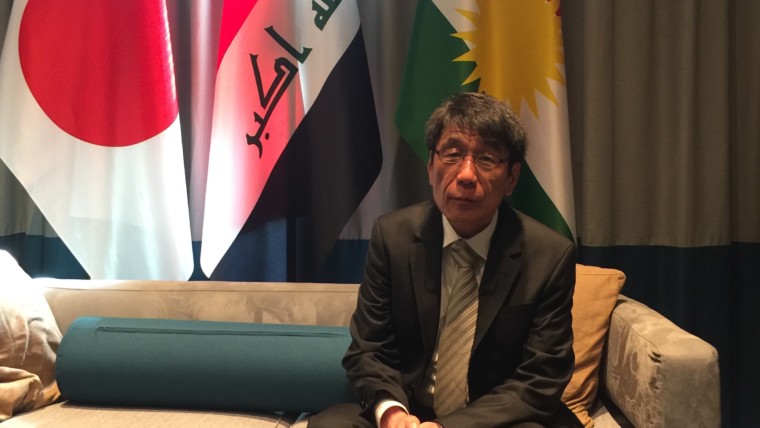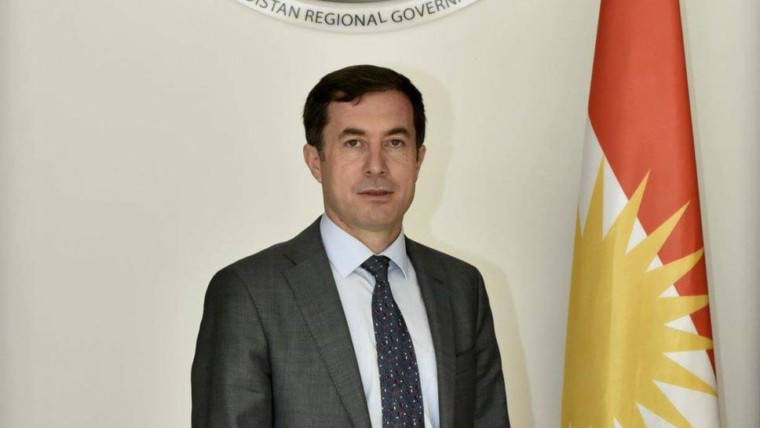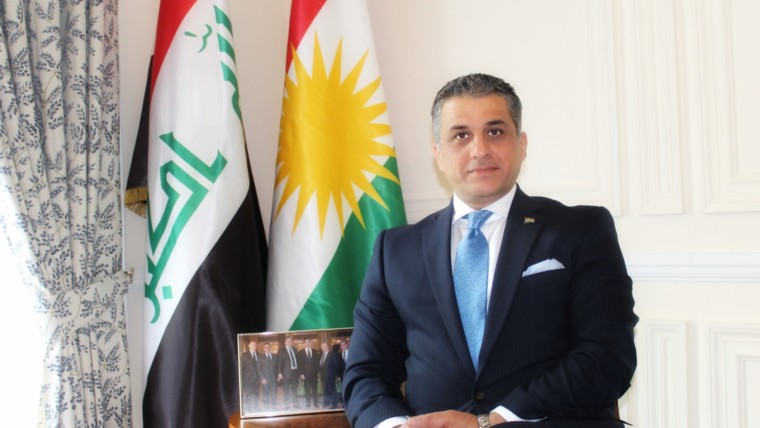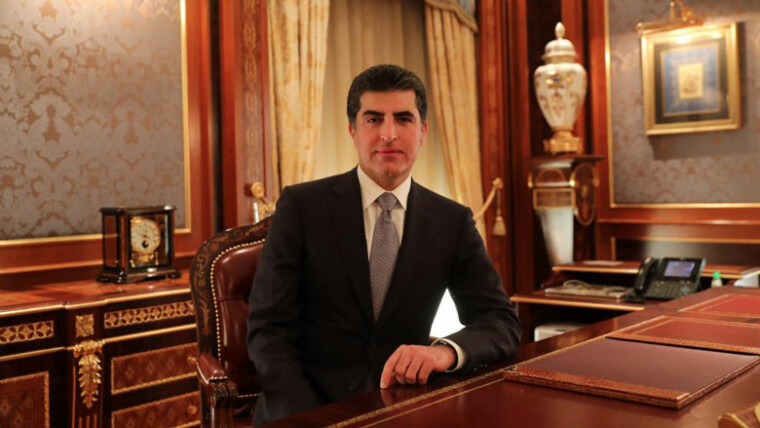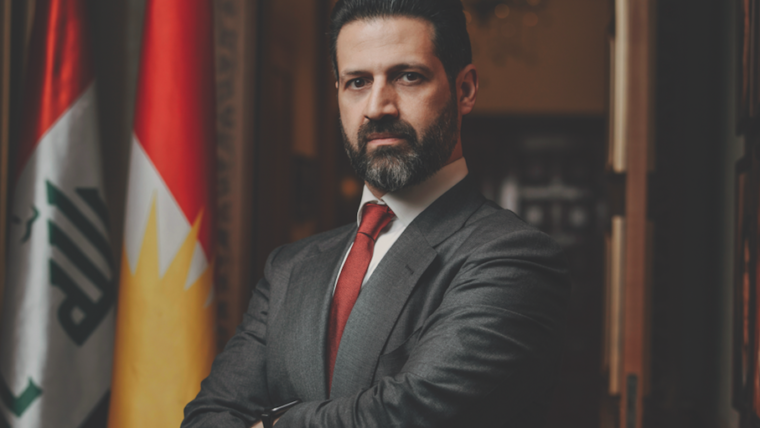The success story of Kurdish diplomacy following the independence referendum of 2017.
The overthrow of the Saddam Hussein regime in 2003 ushered in a decade of rapid socio-economic growth in the Kurdistan Region of Iraq (KRI). With an agreed share of federal public revenue, the Kurdistan Regional Government (KRG) invested heavily in long-neglected essential services and infrastructure. Further, the KRG urged and facilitated the private sector’s growth and prosperity alongside the public sector. With its open access, investment boom, and status as the world’s last oil and gas frontier, the KRI became a significant attraction for the global business and investment community.
The failure of the Iraqi federal government to address pressing issues as required by the Iraqi Constitution, however, caused a persistent and severe rift. Shockingly, the KRI’s heightened level of public and private development was suddenly curtailed in 2014, when the federal government under Prime Minister Nouri al-Maliki suspended the KRI’s share of the federal budget. This financial suspension was exacerbated by another shock the same year, the savage and threatening ISIS onslaught. This caused the third shock, of nearly two million displaced persons, mostly from other parts of Iraq, seeking refuge in the KRI. A fourth shock, a dramatic drop in global oil prices, deprived the KRI of additional revenue. During this time, the federal government provided neither humanitarian support to the KRG for hosting their displaced Iraqi citizens nor military assistance for the fight against ISIS, which continues to this day. Nevertheless, at enormous expense, the KRI remained secure for all residents and visitors and provided for the displaced people.
Then-PM Nechirvan Barzani and his cabinet shouldered a heavy responsibility to find a way out of the political, economic and social crises and respond to the urgent needs of the region, to steer the course of Erbil-Baghdad relations away from confrontation – an indispensable but complicated task.
As the ISIS threat subsided, tension between the KRI and Iraqi government increased. Concerns intensified over the country’s direction and the Iraqi government’s blatant tendency to ignore the Constitution.
The international community was called upon to mediate, but they did not adequately consider KRI’s grievances. In response to the highly threatening situation, the KRI decided in June of 2017 to hold an independence referendum, and the date of September 25th 2017 was set.
The referendum would only determine the preference of the citizens of the Iraqi Kurdistan Region for or against independence, to be later followed by a negotiated settlement. The referendum was also conducted in areas of questionable jurisdiction, a situation the federal government failed to resolve by the end of December 2007, as required by the Constitution. If the referendum results favored independence, the KRG would have faced four possible outcomes: independence, reaffirmation of federalism and its implementation per the Constitution, perhaps a form of confederation, or persistent stonewalling and obstructionism by the federal government.
The referendum on September 25th, 2017 resulted in 93% of those who voted favoring independence.
As domestic public support increased, foreign governments discouraged the referendum. None offered credible alternatives or demonstrated a sincere interest in assisting in resolving the intransigence, nor promoting adherence to upholding the Constitution.
The referendum on September 25th, 2017 resulted in 93% of those who voted favoring independence. In the KRI, the independence referendum process, before and after, was peaceful and joyous and attracted the attention and presence of dignitaries, journalists, academics, and other foreign visitors.
Though in and of itself the referendum changed nothing, then-Iraq Prime Minister Haider Al-Abadi reacted violently to the results. The Iraq Constitution explicitly forbids the use of military forces for political purposes. About three weeks after the referendum, however, in blatant violation of the Constitution, Prime Minister al-Abadi ordered armed forces to take over areas that KRG Peshmerga Forces had been protecting from ISIS. Al-Abadi’s military forces, including Shia militias, caused over 20,000 families to flee their homes and were involved in documented atrocities and looting.
The war against ISIS took the lives of over 1,700 Peshmerga, with many thousands more wounded.
Prime Minister al-Abadi extended aggression by imposing punitive measures on the people of the KRI. He closed national airspace to international flights into Erbil and Slemani airports and demanded control of border crossings. Ignoring federalism required by the Constitution, Prime Minister al-Abadi attempted to invade the KRI and overthrow the KRG militarily. All attempts failed, thwarted by KRG Peshmerga Forces.
Oil production and global prices were severely reduced, and international travel was severely restricted. The war against ISIS took the lives of over 1,700 Peshmerga, with many thousands more wounded. Nearly two million displaced people had taken refuge in the KRI. With half of the population under 20 years of age, progress on hundreds of private and public projects was suspended, and government salaries were reduced. The growing private sector was adversely affected.
Mr. Nechirvan Barzani enjoys close personal relations and influential contacts with European and American leaders, and also with governments and other prominent individuals in Ankara, Tehran, and Baghdad.
In November 2017, Special Representative of the UN Secretary-General for Iraq, Mr. Ján Kubiš, summarized the challenges facing the KRG before the U.N. Security Council. He highlighted that then-Prime Minister Nechirvan Barzani and his cabinet shouldered “a heavy responsibility to find a way out of the political, economic and social crises and respond to the urgent needs of the region, to steer the course of Erbil-Baghdad relations away from confrontation – an indispensable but complicated task.”
Given the punishing impact on the people of the KRI, citizens of Iraq, the KRG faced a daunting challenge of lifting the punitive embargo and preserving the constitutional status of the KRI as a federal region. This required initiatives and deft interaction with both the international community and the Iraqi federal government.
Based on adverse experience with past Iraqi governments and especially during the 1991-2003 embargo, the KRG took proactive measures to guard against isolation and to diversify its economy. This strategy involved diplomatic, economic, and social relations with the international community. KRG Prime Minister Nechirvan Barzani enjoyed close personal relations and influential contacts with European and American leaders, and also with governments and other prominent individuals in Ankara, Tehran, and Baghdad.
French President Emanuel Macron extended an official invitation to the KRG leadership to visit Paris. The closing of national airspace to international flights with Erbil and Slemani airports called for overland travel. Officials of Turkey demonstrably facilitated onward air travel to Paris.
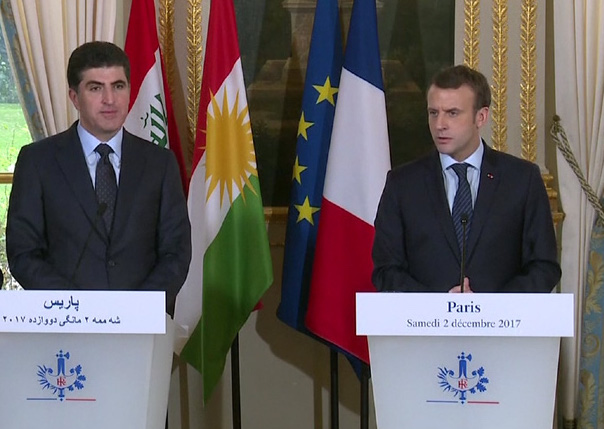
In his December 2017 meeting with President Macron at the Elysée Palace, Prime Minister Barzani requested international support for reopening dialogue between Erbil and Baghdad. He highlighted the destabilizing dangers posed by the Shia militias. President Macron responded that he supported de-escalation and would help pave the way for constructive dialogue.
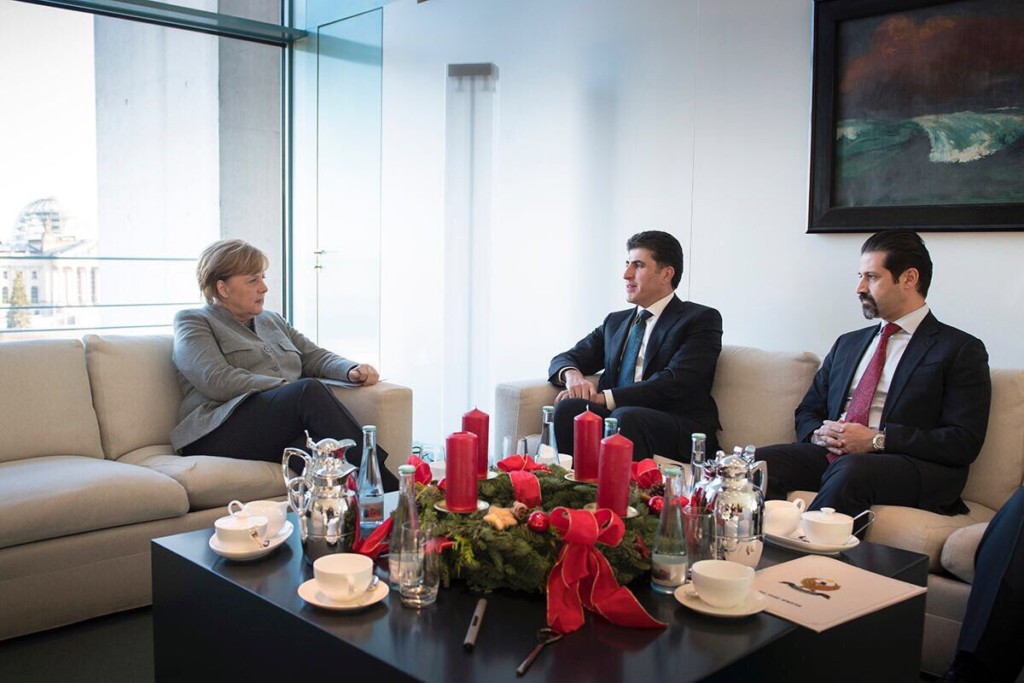
This vital initiative heartened the people of the KRI, especially when they saw French President Emanuel Macron standing alongside KRG Prime Minister Nechirvan Barzani on television. Over the next two weeks, Prime Minister Barzani traversed Europe, reinforcing the initiative by the French president with other key leaders, including German Chancellor Angela Merkel in Berlin and Pope Francis in Vatican City.
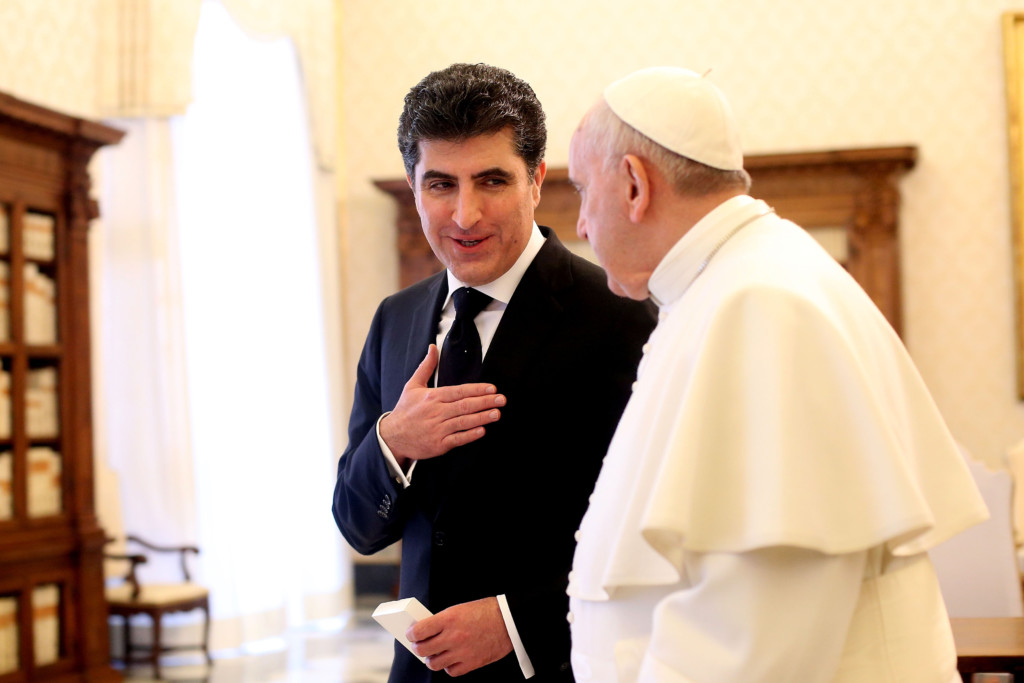
In January 2018, Prime Minister Nechirvan Barzani led a delegation to Iran, where he met with Iranian leaders, including President Hassan Rouhani. The results were reopening of border crossing points and resumption of trade.
In February 2018, Prime Minister Nechirvan Barzani returned to Europe to attend the Munich Security Conference, where he met with several world leaders. For the first time since the referendum, he met with Iraqi Prime Minister Haider al-Abadi, which initiated direct negotiations.
In March 2018, nearly six months after the referendum, the embargo on the KRI was lifted. While breaking the impasse did not result in a comprehensive settlement, it ended the confrontation, and it opened the door to continuing the dialogue to promote adherence to the Constitution and resolve outstanding issues.
Despite dysfunctional governance in Baghdad and continued attempts against the Kurdistan Region, the KRG under then-PM Nechirvan Barzani weathered the crises and brought the Region to a relatively high level of personal security and political stability.
In July 2018, Prime Minister Nechirvan Barzani was invited to attend the inauguration of Turkey’s President Recep Tayyip Erdogan. Turkey has been the KRI’s largest trading partner. Though the referendum strained KRG relations with Turkey, Ankara never closed its border crossings, and oil continued to flow through the KRI-Turkey pipeline. Prime Minister Nechirvan Barzani’s relationships with Turkey’s leaders helped put ties back on track before the inauguration.
With regional and global partners, the KRI has well demonstrated that it is a valued and trusted partner in peace and economic advancement.
Despite dysfunctional governance in Baghdad and continued attempts against the Kurdistan Region, the KRG under then-Prime Minister Nechirvan Barzani weathered the crises and brought the Region to a relatively high level of personal security and political stability. With regional and global partners, the KRI has well demonstrated that it is a valued and trusted partner in peace and economic advancement. A land that has strived to enjoy stability, economic development, and peaceful coexistence of various religions and ethnicities, it has earned the respect of its regional and international partners.


